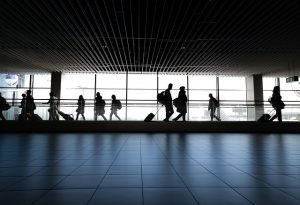From March 27, 2021, the Argentine National Government decided to expand the list of countries from which international flights will be suspended and to establish stricter immigration controls and requirements for entering the country and mandatory isolation in an effort to prevent and mitigate a second wave of coronavirus.
Among the new measures and additional controls adopted are the following:
- Expansion of international flight suspensions: As of March 27, 2021, international commercial passenger flights to and from Brazil, Chile, and Mexico are suspended. These countries are added to the United Kingdom of Great Britain and Northern Ireland, whose flights were already suspended. The Argentine Government has expressly stated that flights to the Argentine Republic scheduled to arrive within 48 hours of the measures taking effect, i.e., until March 29, 2021, and flights necessary for the return of Argentine citizens and/or foreign residents in Brazil, Chile, or Mexico, who left the country before March 27, 2021, and have return dates scheduled until March 29, 2021, are exempt from the aforementioned flight suspensions.
- Daily entry and exit quotas: The National Civil Aviation Administration (ANAC) or the relevant body, acting within the scope of the Ministry of Transport and the Ministry of Health in coordination with the National Directorate of Migration, will initially maintain a daily availability of 2,000 entry and exit slots for international commercial passenger flights and will establish a gradually decreasing flow based on this. The same criteria will apply to international maritime and river passenger transport, allowing for one international ship per week.
- Expansion of entry requirements and mandatory isolation: Citizens authorized to enter the country must comply with the following requirements:
- Complete the online affidavit of entry to the country of the National Directorate of Migration 48 hours prior to boarding;
- Attach a negative PCR (sample taken 72 hours before boarding);
- Have COVID medical insurance;
- Take a test for SARS-CoV-2 upon arrival in the country, the cost of which must be borne by the individual entering the country;
- Take a new test for SARS-CoV-2 on the seventh day of arrival in the country, the cost of which must also be borne by the individual entering the country, as a condition for the completion of the mandatory isolation.
Positive PCR result upon entry to the country: Those individuals who test positive for SARS-CoV-2 upon entry to the country must then take a PCR test for genomic sequencing, as indicated by the national reference laboratory. Furthermore, those who test positive and their close contacts must comply with mandatory isolation in places designated by the relevant national authorities until safe transfer to their place of residence is carried out, if applicable. The stay in these isolation places will be at the expense of the individual entering the country and must be carried out in the manner established by the competent authorities.
Negative PCR result upon entry to the country: Those individuals who test negative for the PCR test upon entry to the country must comply with mandatory isolation at the respective addresses reported for this purpose in their entry affidavit for a period of 7 days from the time the sample was taken upon entry to the country.
Positive PCR result on the seventh day of entry to the country: Those individuals who test positive for the PCR test on the seventh day after entering the country, the intervening laboratory must take steps to ensure that the competent national authority genomically sequences the sample and the local health authority immediately traces the close contacts of the individual who traveled, based on the mechanisms provided for tracking their entry and transfer to the mandatory isolation place.
The cost of genomic sequencing tests must be borne by the individual entering the country and must be carried out in the manner established by the competent authorities.
- Marketing of international student trips: Travel agencies must submit to the Ministry of Tourism and Sports a proposal for a health protocol that includes the controls required by the national health authority and includes, regarding PCR tests, certifications from the testing center at the destination abroad, issued by the health authority of that country, with the services offered being suspended until the respective authorizations and validations are carried out, the corresponding health protocol is approved, and the destinations are authorized for the operation of international passenger transport.

